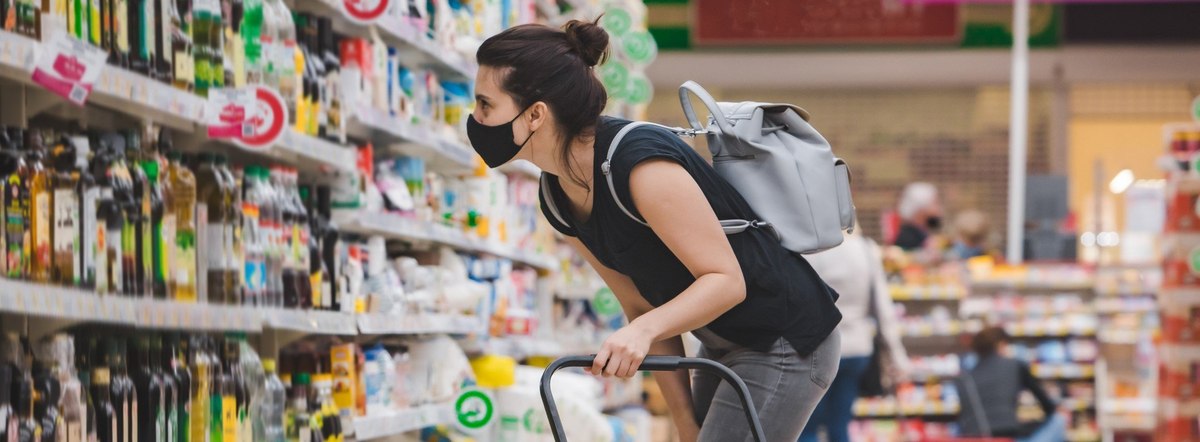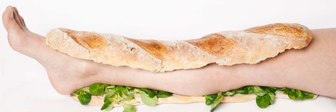COVID-19 will leave a lasting scar on life around the world. It has upended how we work, how we communicate, and what we value.
As we approach the anniversary of a year since the pandemic was declared, we use the data we’ve collected shed light on how behaviours have changed during the pandemic, how perception of certain brands has shifted, and what measures will make consumers feel more comfortable as they return to normal life.
Tech: Over the last year, consumers have been forced to live out much of their daily life online, and YouGov data shows how Brits have gravitated toward WhatsApp to keep in touch, YouTube for video entertainment, Instagram to share photos, and Google Chrome to browse online.
Retail: In the UK, lockdowns meant fewer and fewer consumers were able to buy clothing items in-store – a fact that’s reflected in the data. Between December 2019 to 2020, it shows a nine-point decline in the proportion of people who did the majority of their shopping in-store. The proportion of online shoppers, however, saw a bump, rising from 31% to 38%.
Finance: COVID-19 appears to have had a dramatic impact on people’s willingness to use cash. The proportion of consumers who said they “never make payments in cash” or “only make payments in cash if [they] need to” increased by 16 percentage points from 49% to 65%, while the proportion of those who said they “make payments in cash fairly often” decreased by 13 percentage points to 25%. Those who said they always or exclusively make payments in cash dropped by five percentage points to 6%. This may be a byproduct of lockdown and the (sometimes temporary, sometimes permanent) closure of many retailers.
Media: People spent more time at home due to lockdowns and in their search for news, entertainment and distraction, their time spent in front of screens and devices also went up. Amid the pandemic, Brits said they were consuming content on TV, streaming platforms, Facebook and YouTube more often. Young adults were significantly more likely to say they were streaming content and browsing social media more than usual during the pandemic. YouGov has been tracking how consumer behaviours and media consumption in 17 countries have changed within the last year. Read the new International Media Consumption 2021 Report here.
Video gaming: Many Brits turned to video games to quash pandemic boredom, making the 2020 launch of the PlayStation 5 and Xbox Series S and X even more interesting. However, for most who were keen to get their hands on a console, the weeks before Christmas were defined by three words of frustration: Out of stock. As demand for both consoles continues to outstrip supply, Purchase Intent among Brits for the PS5 slumped after Christmas but is rebounding. Purchase Intent for the Xbox is behind PlayStation, but has remained stable since the launch of the Series S and X.
Sport: There is a good chance some of the biggest sporting events of summer 2021 could be played in front of fans, if all goes according to the British government’s plan. But YouGov data shows just how comfortable the British public is going to live events right now. Between 19% and 26% of fans, depending on the fan base, say they’re ready to head to the stands.
Consumer goods: Driven by the COVID-19 crisis, households in Great Britain flocked to stores to make sure they had enough groceries and supplies to last through the lockdowns. Grocery spending in Great Britain swelled between May to December, with Brits saying they spent more on groceries via both online (25% say they spent more using this method) and in-person purchases (37% spent more).
Healthcare: Public perceptions of the pharmaceutical industry jumped significantly over the last year. Net favourability leapt by 16 percentage points, rising from 32% to 58% of the public, while net unfavourability fell from 22% to 11%. This may be due to increasingly positive sentiment around the medical community in general, as well as the ongoing vaccine rollout.
Travel: Before a COVID-19 vaccine was approved in the UK, two thirds of Brits (64%) said they were willing to take a coronavirus test at the airport when returning to the UK. About half of Brits (48%) said they would be willing to take a test upon arrival and self-isolate for a day while waiting for the results. The same survey revealed that a third of the UK (32%) would rather have waited than have travelled to destinations that would require them to quarantine for two weeks before returning. Travel guidelines that required people to self-isolate were also not very popular among Brits in September.
Autos: YouGov BrandIndex data shows that, among auto brands in the UK, Tesla saw the biggest year-on-year improvement – with a change in overall Index scores of +2.1 compared across February 2019 to 2020. Other brands that saw upticks in their consumer perception included Nissan (+1.3 ) and Honda (+1.1).






















